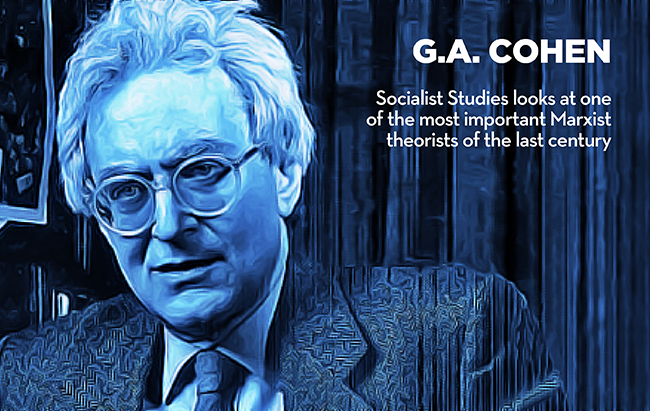How Insensitive: Principles, Facts and Normative Grounds in Cohen’s Critique of Rawls
DOI:
https://doi.org/10.18740/S4ZP4ZAbstract
Cohen’s hostility to Rawls’ justification of the Difference Principle by social facts spawned Cohen’s general thesis that ultimate principles of justice and morality are fact-insensitive, but explain how any fact-sensitive principle is grounded in facts. When facts F ground principle P, reformulating this relation as conditional “If F, then P” is trivial and thus explanatorily impotent. Explanatory, hence justificatory, force derives either from subsumption under more general principles, or precisely exhibiting value in light of relevant (actual or hypothetical) facts. In examples where no subsumption occurs, actual facts trivially become hypothetical facts, an empty formalism. Indeed, Rawls’ grounding of principles of justice in “conditions of life” can easily be reformulated as a conditional principle “sensitive” only to hypothetical such conditions, and thus formally fact-insensitive, for all Cohen’s ire against Rawls’s grounding. Moreover, any plausible “ultimate fact-insensitive principle” must be intricately qualified, which tacit ceteris paribus clauses mask. Each qualification implies prioritisation of one principle over another in conceivable circumstances, and wherever the now qualified principle is given scope, that too implies prioritisation over competing principles in typical circumstances. Any principle is thus sensitive to conceivable circumstances of application, as recognised by more sophisticated intuitionisms. Non-trivial ultimate principles – luck egalitarianism, act utilitarianism, etc. - require defense, which inevitably involves showing how they best interpret and respond to facts about human needs, goals, and capacities in predictable circumstances. Finally, the substantive debate between Rawls and Cohen about which facts are relevant to the DP is only obscured by the doctrine of fact-insensitivity. L’hostilité de Cohen envers Rawls fondant le principe de différence sur des faits sociaux a engendré sa théorie générale selon laquelle les principes ultimes de justice et de moralité ne sont pas sensibles aux faits, mais explique que n’importe quel principe sensible aux faits est ancré dans les faits. Quand les faits F expliquent un principe P, une reformulation de cette relation dans la forme conditionnelle « si F, alors P » est triviale et n’apporte rien en termes d’explication. La force explicative et justificative, vient soit de la subsomption par des principes plus généraux soit, lorsqu’il n’y a pas subsomption, précisément parce qu’elle apporte de la valeur à la lumière de faits réels ou hypothétiques… Dans les exemples où il n’y a pas de subsomption, des faits réels deviennent trivialement des faits hypothétiques, un formalisme vide. La manière dont Rawls fonde ses principes de justice sur des « conditions de vie » peut facilement être reformulée comme s’ils étaient des principes conditionnels « sensibles » uniquement à des conditions hypothétiques, devenant ainsi formellement insensible aux faits, esquivant la colère de Cohen contre la méthode fondatrice de Rawls. En outre, n’importe « principe insensible aux faits » plausible doit être qualifié de façon détaillée, ce qui est masqué par les clauses tacites « toutes choses étant égales par ailleurs ». Chaque qualification implique la priorisation d’un principe sur un autre dans des circonstances concevables, et partout où le principe maintenant qualifié est censé être appliqué, cela implique aussi la priorisation sur des principes alternatifs dans des circonstances typiques. N’importe quel principe est ainsi sensible à ses domaines d’application concevables, comme les intuitionnismes sophistiqués le reconnaissent. Les principes ultimes non triviaux – l’égalitarisme des chances, l’utilitarisme des actions, et cetera – doivent être défendus, ce qui implique inévitablement que l’on montre comment ils interprètent et rendent compte de faits relatifs aux besoins, objectifs, et capacités humains dans des circonstances prévisibles. Par conséquent, le débat substantif entre Rawls et Cohen à propos des faits qui sont pertinents dans la formulation du principe de différence est obscurci par la doctrine de l’insensibilité aux faits.Downloads
Published
Issue
Section
License
Copyright: Authors who publish in the Journal agree to the following terms: 1)Authors retain copyright and grant the Journal the right of first publication with the work simultaneously licensed under a Creative Commons Attribution License that allows others to share the work with an acknowledgement of the work's authorship and initial publication in the Journal; and, 2)Authors are able to enter into separate, additional contractual arrangements for the non-exclusive distribution of the Journal's published version of the work (eg post to an institutional repository or publish it in a book), with an acknowledgement of its initial publication in the Journal.






